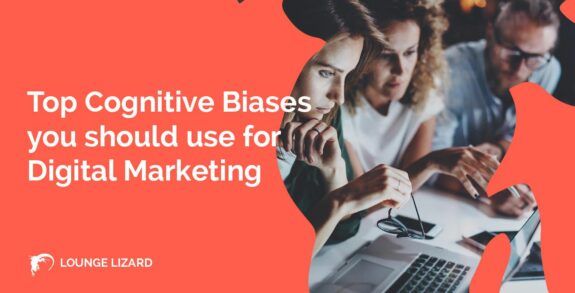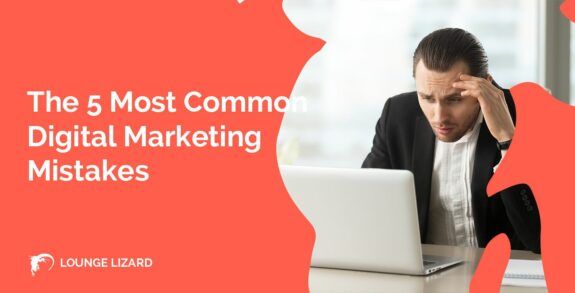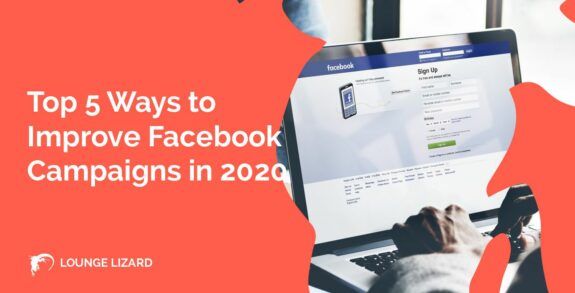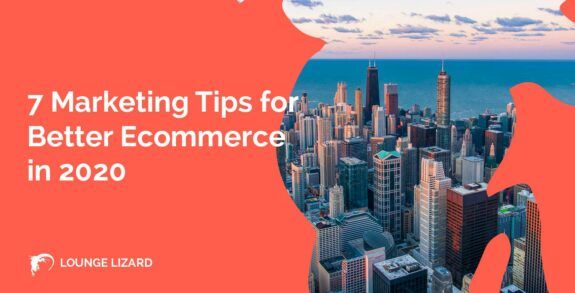Top Cognitive Biases you should use for Digital Marketing

Psychology plays a big part in the marketing world. As marketers, we utilize psychology to better understand human behavior and create consumer personas. One of the more interesting aspects of our behavior is the reliance on cognitive biases to drive some of our actions. As a top digital marketing firm, we wanted to explain about these biases and share the Top Cognitive Biases you should use for Digital Marketing.
What are Cognitive Biases?
The term ‘cognitive biases’ is defined as “making a mistake with reasoning,” where a person ignores facts to instead follow things like social factors, past experienced, preconceived notions, or even environmental factors. Call them mental shortcuts or learned behavior, they can lead to irrational behavior. Often, we are unaware that we make these decisions for less than optimal reasons.
This bias was first named as a “cognitive bias” by a pair of researchers, Amos Tversky and Daniel Kahneman, in 1972. Over the years, studies have verified how often cognitive biases affect our decisions and day-to-day lives. Marketers quickly learned that these could be used to improve conversion rates.
Top Cognitive Biases for Digital Marketing
While there are dozens of cognitive biases that have been used in digital marketing, these are the most effective ones to include in your digital marketing strategy:
- Fear of missing out – Fear of missing out or FOMO received a jolt of attention over the past few years, and surprisingly has become more powerful because of it. Basically, it is when people are worried about missing out on a great experience because they aren’t there. The concept of FOMO has helped drive the regular usage of social platforms where people stay more connected to other people and the world to avoid the possibility of missing something they might not want to miss. Techniques for using FOMO in marketing include using low stock messages and limited time offers to utilize scarcity.
- Confirmation bias – This is when people’s own beliefs and hypotheses about life shades their interpretation of information to confirm what they already believe. This happens often in politics and religion or general stereotypes. Interestingly, this is something that is hardwired into us as humans rather than learned social behavior. We want to be right in our beliefs and look for ways to reinforce the concept. In marketing, it is critical to be consistent with messaging between ads and landing pages, so people get the same offer they viewed earlier.
- Bandwagon effect – It doesn’t just happen in sports! People jump on all sorts of bandwagons from political candidates, to Oscar nominations, to music. People like to be part of a group and it is easy to jump on a bandwagon.
- Repetitive reinforcement – When something is repeated often enough, it eventually will be believed to be true. The internet is a constant example of this where things can be repeated over and over by numerous sources and they become almost self-reinforcing.
- Loss aversion – People don’t want to give something up. It doesn’t even matter if it isn’t something they need; they simply don’t want to lose something. That is why buy-one-get-one sales are effective or sales like “buy it now and get 25% off!”.
- Anchoring – The concept of anchoring is based on how many people will rely on a singular piece of information when making a purchase decision. For example, people who are price conscious don’t look much further than price. People who rely on ratings will focus most attention there. Understanding your customers better makes it easier to design your site to showcase products and services based on what they deem most important for their decision-making process.
- Herd mentality – Black Friday and Cyber Monday are the most obvious examples of herd mentality in the marketing world. People literally go crazy to obtain what they perceive as a great deal based on the desire for the deal by a herd of people. Amazon uses a herd mentality to promote products with ‘Top Seller’ badges. Most wanted, top sellers, and highest-rated designations are all ways to amplify herd mentality.
The Bottom Line
The bottom line is that cognitive biases affect more decisions than most people realize. It is important to understand them to not only prevent irrational behavior yourself but also use them to better understand your customers. This list of the Top Cognitive Biases you should use for digital marketing contains some of the most effective ways for boosting online conversion rates.
Be sure to check back every week for great new Lounge Lizard blog articles.





